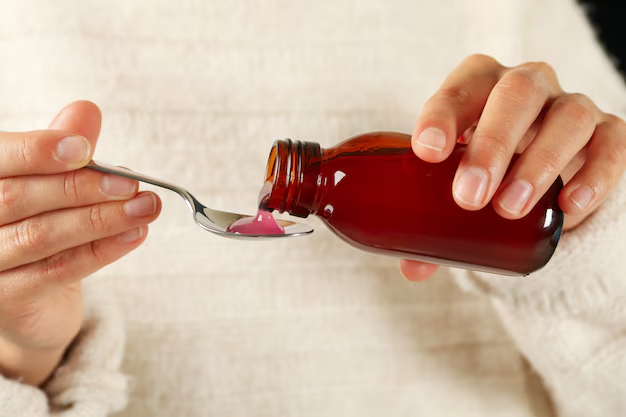Is Splenda Linked to Cancer? Insights and Context for Informed Choices
In the world of sugar substitutes, Splenda has been a favorite for many trying to cut down on sugar intake. As with many artificial sweeteners, questions have lingered over its safety, particularly, "Can consuming Splenda give you cancer?" With varied headlines and studies, it's essential to approach this question with all angles covered for a balanced understanding.
Understanding Splenda: What Is It?
Splenda is the brand name for sucralose, a no-calorie artificial sweetener. It's up to 600 times sweeter than sugar and remains stable at high temperatures, making it a popular choice for cooking and baking. Unlike sugar, sucralose is not metabolized by the body, which means it passes through without providing any calories.
Sucralose: How It's Made
To create sucralose, certain hydrogen-oxygen groups in sucrose (table sugar) are replaced with chlorine atoms. This modification prevents it from being metabolized by the body, thus maintaining its sweetness without the caloric impact.
The Cancer Discussion: Is There a Risk?
When discussing if Splenda can give you cancer, the root concern often stems from its main ingredient, sucralose. To date, multiple studies have aimed to decipher whether sucralose poses any carcinogenic risks.
What Does Science Say?
Studies in Animal Models
Some studies suggest that at extremely high doses (much higher than typical human consumption), sucralose might have adverse effects. For instance, in certain laboratory settings, high doses of sucralose have been linked to an increased risk of developing certain types of cancer in rodents. However, critics argue that these findings do not translate directly to human dietary habits due to the unrealistic quantities tested.
Human Studies and Regulatory Evaluations
As of now, there is no conclusive evidence indicating that sucralose poses a cancer risk in humans. Regulatory bodies such as the FDA, European Food Safety Authority, and the Joint FAO/WHO Expert Committee on Food Additives have evaluated the research extensively and concluded that sucralose is safe for human consumption within recommended limits.
Understanding Acceptable Intake Levels
Regulatory bodies recommend guidelines for the acceptable daily intake (ADI) of artificial sweeteners like sucralose. For sucralose, the ADI is set at 5 mg/kg of body weight per day. This means a person weighing 68 kilograms (about 150 pounds) can safely consume up to 340 mg of sucralose daily, translating to quite a substantial number of packets relative to typical portions used in foods and beverages.
Benefits and Considerations of Using Splenda
Switching to artificial sweeteners like Splenda can have both benefits and considerations, especially concerning dietary goals and health implications.
Benefits
- Weight Management: As a calorie-free sweetener, Splenda can help with weight management by reducing overall caloric intake without sacrificing sweetness.
- Blood Sugar Control: Splenda does not elevate blood glucose levels, making it a suitable alternative for those with diabetes.
- Dental Health: Since sucralose does not cause tooth decay, it could be a better choice for maintaining dental health compared to sugary foods.
Considerations
- Taste and Texture: Some users report a noticeable aftertaste when using sucralose-based sweeteners, particularly in their beverages.
- Digestive Concerns: In some cases, consuming large amounts of artificial sweeteners can lead to digestive issues such as bloating or gas.
Exploring Alternatives: Other Sweeteners in the Market
Not everyone favors Splenda, either due to taste preferences or concerns about artificial ingredients. Here's a brief look into other sweetener options:
Natural Sweeteners
- Stevia: Sourced from the leaves of the Stevia plant, it's another calorie-free alternative with a different taste profile.
- Honey: A natural sweetener with antioxidants, but it comes with calories and impacts blood sugar.
- Monk Fruit: This is a natural sweetener that offers zero calories and is generally considered safe.
Artificial Sweeteners
- Aspartame: Commonly found in diet sodas, though individuals with phenylketonuria (PKU) should avoid it.
- Saccharin: One of the oldest artificial sweeteners; controversies around its safety have been largely debunked over the decades.
Empowering Choices: Making Informed Decisions about Sweeteners
When selecting sugar substitutes, it's vital to consider personal health goals, nutritional needs, and lifestyle. Here are some practical tips to guide your choices:
- Read Labels Carefully: Different products have varying amounts of sweeteners. Understanding labels can help manage intake.
- Moderation is Key: Even if something is deemed safe, maintaining a balanced approach is recommended.
- Listen to Your Body: Everyone reacts differently to different sweeteners. Pay attention to how your body responds and adjust accordingly.
- Consult a Professional: If you're unsure or have specific health conditions, consulting a nutritionist or healthcare provider for tailored advice might be beneficial.
Key Takeaways
While the question "Can Splenda give you cancer?" persists, current consensus among scientific and regulatory communities suggests that sucralose, when consumed within recommended limits, does not pose a cancer risk. However, continued research and updates in dietary guidelines underscore the importance of staying informed. Balancing sweetness with health involves understanding the options and making choices aligned with personal well-being.
Summary: Key Points to Remember 💡
- What is Splenda?: A calorie-free sweetener used as a sugar substitute.
- Current Evidence: No conclusive data shows sucralose causes cancer in typical human consumption levels.
- Daily Limits: Safe within the ADI of 5 mg/kg of body weight.
- Pros & Cons: Benefits weight management; pay attention to taste and digestive reactions.
- Alternatives: Consider natural options like stevia; weigh artificial vs. natural trade-offs.
- Practical Tips: Read labels, moderate, monitor body reactions, and consult professionals.
Staying informed and practicing moderation empowers you to enjoy sweet treats thoughtfully! 🍬📚

Related Articles
- Are Breast Cancer Lumps Painful
- Are Chills a Sign Of Cancer
- Are Colon Spasms a Sign Of Cancer
- Are Lytic Lesions Always Cancer
- Are Polyps Cancer
- Can a Blood Test Detect Cancer
- Can a Ct Scan Detect Cancer
- Can a Dexa Scan Show Cancer
- Can a Gastric Emptying Scan Show Cancer
- Can a Lung Biopsy Cause Cancer To Spread
